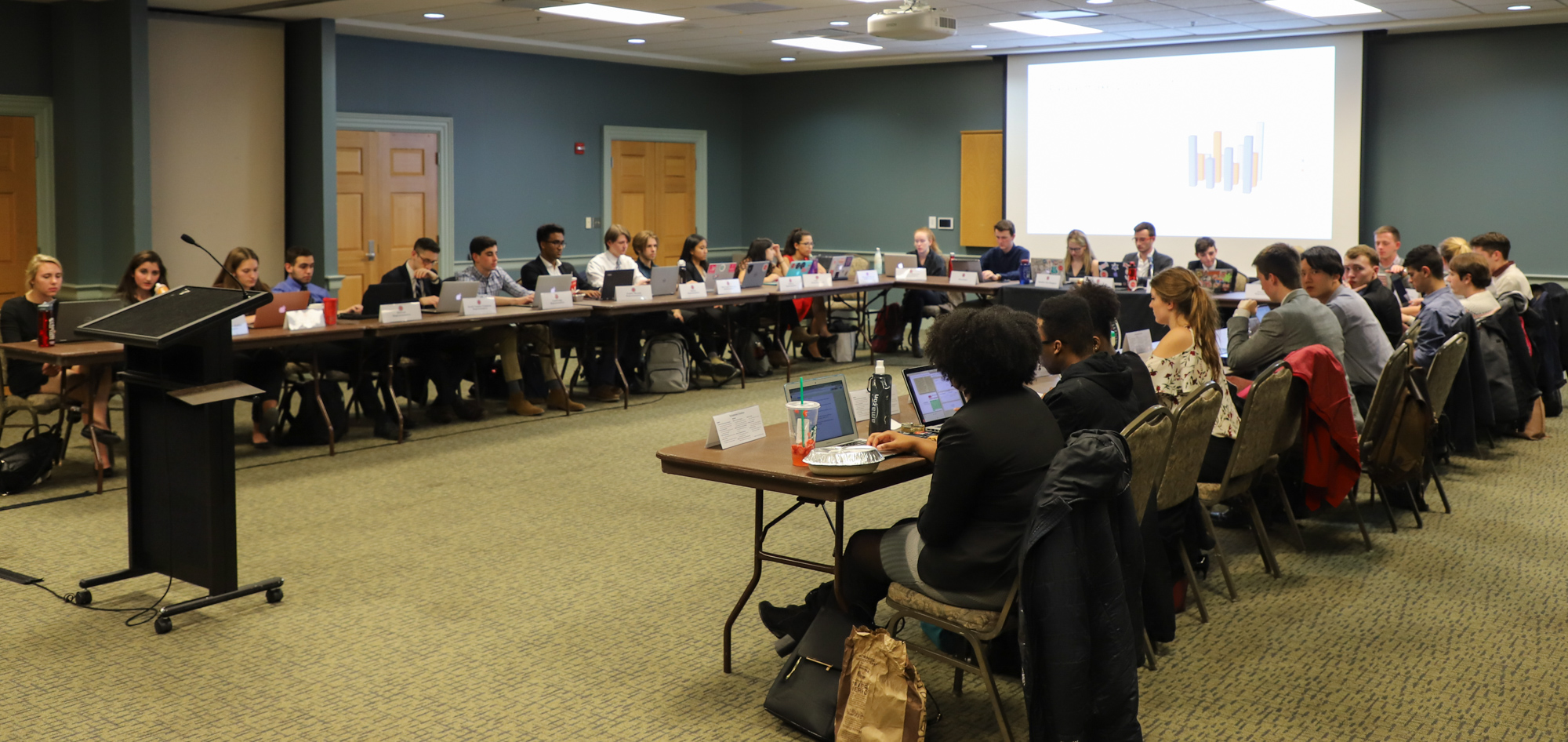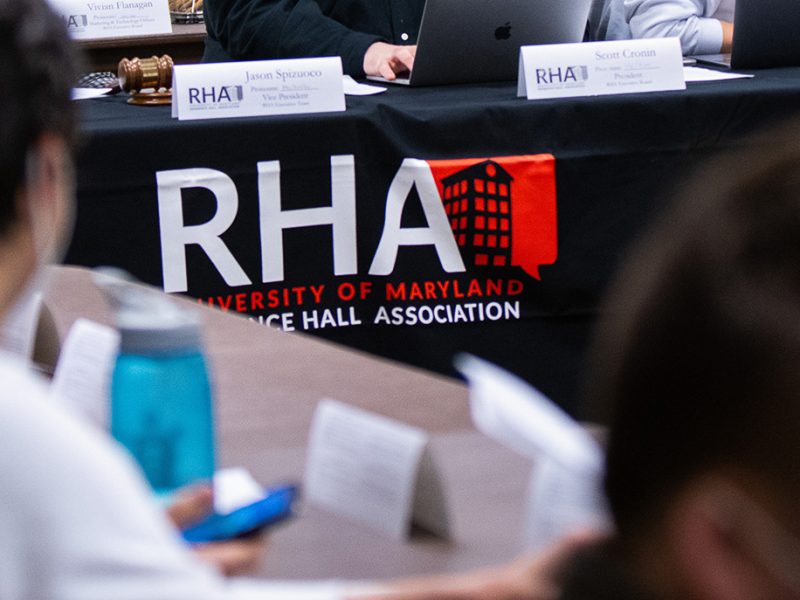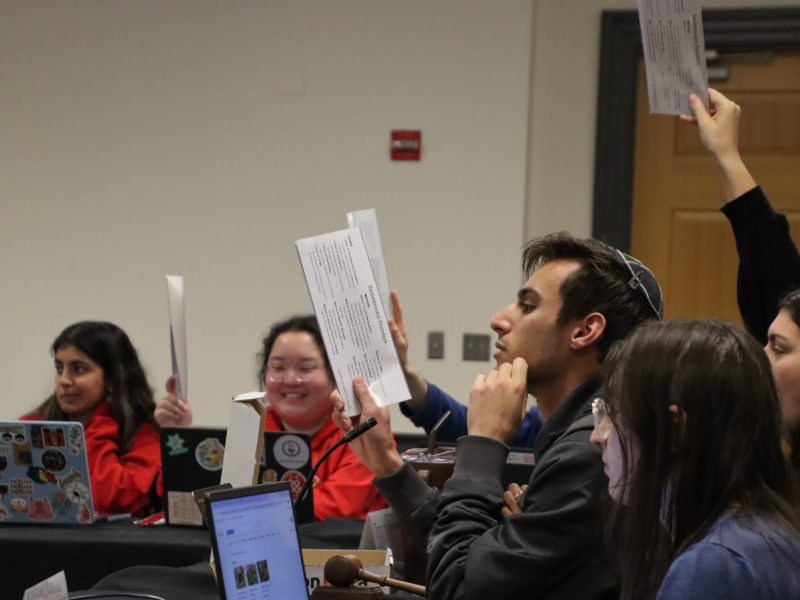Through living in Denton Hall his freshman year and participating in different organizations, such as the SGA, Sam Koralnik formed relationships with people from different backgrounds — something not all his peers engage with, Koralnik said.
To encourage students to get to know others at the University of Maryland, the SGA voted in favor of a resolution Koralnik created that recommends implementation of a four-week, diversity-focused dialogue pilot program called Connect.
“So many people don’t interact with other people from across this campus if they’re not forced to do it,” said Koralnik, the SGA’s South Campus Commons representative.
[Read more: After the killing of Richard Collins, UMD SGA begins planning diversity monument]
The Connect program, hosted through a nonprofit organization called Soliya, aims to build relationships through facilitating conversations about identity, including religious, cultural, social and political topics, according to its website.
Soliya seeks to use relationship-building through dialogue to promote diversity and inclusion around the world, according to the organization’s website.
University President Wallace Loh commended the program, adding that it’s beneficial when students work to bring conversations to the campus, such as when students invited Rep. John Lewis, who spoke about racial tension at the Memorial Chapel in October.
[Read more: UMD students voice concerns about the diversity task force at its second open forum]
“The idea of having additional dialogues on cultural diversity: If they want to do it, great,” he said. “I’m glad that people are actively setting up these forums.”
The murder of 2nd Lt. Richard Collins on the campus and the discovery of a noose in a fraternity house make this an apt time to test this program, Koralnik said.
This university has also seen multiple hate bias incidents this semester, including a swastika being found in the plant sciences building and a swastika spray-painted on a trash cart at Hagerstown Hall.
“The way I see things is that we’re at an inflection point and we can either choose to lean in and engage with these dialogue programs, to build a stronger more resilient campus community, or we could just let things be the status quo,” said Koralnik, a senior government and politics major.
While the resolution passed, the program still needs to secure funding.
If funded, 10 students will participate in the $4,240 pilot program over winter break, Koralnik said. The students, who have to apply for the program, would ideally be ethnically, racially and ideologically diverse, he added.
Koralnik said he plans on making an application available to students online.
Throughout the four-week program, they will meet in a “virtual online platform” once a week for two hours, he added. Surveys will also be conducted to evaluate the effectiveness of Connect.
Koralnik will look to the SGA, the Office of the Vice President, the Office of Undergraduate Studies and the Office of Diversity and Inclusion for funding, he said.
The SGA may be able to help fund the pilot program through the organization’s executive and cabinet reserves, SGA President A.J. Pruitt said. He added that he is looking forward to a conversation about the feasibility of funding.
“It’s an innovative new idea to address issues that we know are prevalent on this campus,” Pruitt said.
In May, Loh pledged $100,000 to the Office of Diversity and Inclusion to support the office’s initiatives, which is a possible source of funding, said Koralnik.
The Office of Diversity and Inclusion is interested in contributing to the pilot program, said Roger Worthington, chief diversity officer at this university.
The pilot program will be a useful way to see if it meets the goals that the office is working to achieve, such as creating a comprehensive dialogue and discourse initiative on the campus, Worthington said.
“As we begin to pull together individuals and groups on campus interested in participating in our campuswide initiative on dialogue and discourse, we will be interested in bringing everyone to the table with a wide range of different ideas,” Worthington said.
The Office of Student Affairs does not have money allocated for the program, said Warren Kelley, assistant vice president of student affairs at this university. Kelley added the office would need discuss the initiative more with Koralnik to determine if student affairs would be able to offer financial support.
“I agree frankly that figuring out a way to acclimate incoming first-year students to this campus in a manner that helps them understand the kind of place this is, the degree to which we appreciate diversity and inclusion will help students understand the campus they’re coming to,” Kelley said. “I support the idea, but the cost is another question.”
The resolution also calls on the Joint President/Senate Task Force on Inclusion and Respect to include a follow-up on the program in its recommendations if the university finds the pilot program to be successful.
The task force’s subcommittee on education and prevention should consider including the program in its final recommendations in April 2018 to the larger task force, said Kelley, who is a chair of the task force.
The task force will keep the program in mind if it deems the pilot successful, said Ja’Nya Banks, who leads the task force’s education and prevention subcommittee. Banks is also the SGA director of diversity and inclusion.
Not all students are able to get experience with cultural competency training or interacting with students of different backgrounds upon enrolling at this university, Banks said.
“Ideally, the program in practice would touch students before they reach campus and give them opportunities to have diverse dialogue with students before they got on campus,” Banks said.
If the pilot program is successful, Koralnik hopes the initiative will continue and eventually become available for all freshmen at this university.
“My plan and my goal is to lay the ground works so that this program can be successful,” Koralnik said. “If people show interest, they can pursue this in the coming years.”



